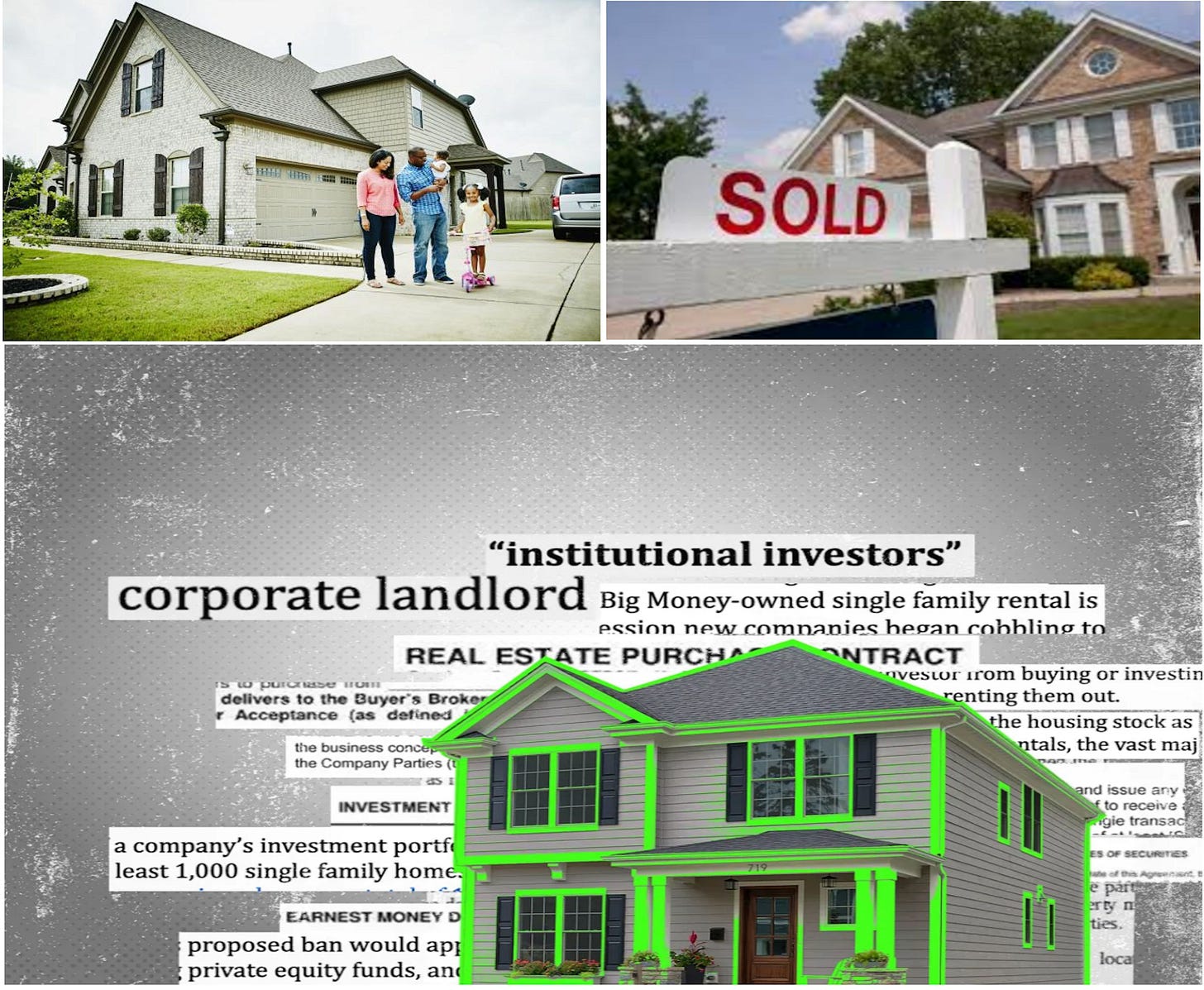The Destruction of the America.
Are Trump and the GOP purposely trying to destabilize the US & World economies?
In his second term, President Donald Trump has introduced a series of economic policies, notably expansive tariffs, that critics argue could destabilize the U.S. economy. While Trump claims these measures aim to protect domestic industries and reduce trade deficits, their actual repercussions are likely to include increased consumer prices, strained international relations, and heightened economic uncertainty.
The policy proposals of the Trump administration and the Republican Party (GOP) for 2025 have sparked significant debate. Supporters argue that these policies will revitalize the economy and restore American prosperity, while critics warn they could have severe consequences for the U.S. economy and the livelihoods of working Americans. In conclusion, the 2025 policies of the Trump administration and the GOP, if implemented, are likely to deliver a devastating blow to the U.S. economy and negatively impact every working American. This essay will explore the potential economic ramifications of these policies, focusing on tax reforms, deregulation, trade policies, and social spending cuts.
One of the central pillars of the Trump administration's and the GOP’s 2025 agenda is the implementation of sweeping tax cuts, particularly for corporations and high-income individuals. While proponents argue these cuts will stimulate investment and economic growth, evidence from the 2017 Tax Cuts and Jobs Act suggests otherwise. The 2017 tax cuts disproportionately benefited the wealthiest Americans and corporations, leading to a surge in the federal deficit without delivering the promised broad-based economic growth. If similar policies are enacted in 2025, they are likely to exacerbate income inequality and reduce federal revenue, limiting the government’s ability to invest in infrastructure, education, and social programs that benefit working Americans. Furthermore, the resulting budget shortfalls could lead to cuts in essential services, further straining middle- and lower-income families.
The Trump administration and GOP have consistently advocated for deregulation as a means to boost economic growth and reduce costs for businesses. However, deregulation often comes at the expense of worker protections, environmental standards, and financial stability. Rolling back regulations on workplace safety, environmental protection, and financial oversight could lead to increased workplace accidents, environmental degradation, and financial instability. These outcomes would disproportionately harm working Americans, who rely on these protections to ensure safe working conditions, clean air and water, and a stable economy. Moreover, the long-term costs of environmental damage and financial crises could far outweigh the short-term benefits of deregulation.
This exacerbates income inequality, leaving working Americans with stagnant wages and fewer opportunities for upward mobility. Furthermore, the tax cuts have contributed to a ballooning federal deficit, which could force future cuts to essential social programs like Medicare, Social Security, and education, further harming working-class families.
Another aspect of the 2025 policy agenda is the potential for significant cuts to social spending programs, such as Medicare, Social Security, and Medicaid. These programs provide critical support to millions of working Americans, particularly the elderly, low-income families, and individuals with disabilities. Cutting funding for these programs would undermine economic security and exacerbate poverty and inequality. Moreover, reduced access to healthcare and social services could lead to poorer health outcomes, reduced productivity, and increased financial strain on families. In the long term, these cuts could stifle economic growth by limiting the ability of individuals to participate fully in the economy.
Moreover, the Trump administration and the GOP have consistently failed to address systemic economic inequalities. Policies such as weakening labor unions, opposing minimum wage increases, and undermining the Affordable Care Act have eroded the economic security of working Americans. Labor unions, historically a cornerstone of workers’ rights, have faced relentless attacks, leading to diminished bargaining power and fewer protections for employees. Meanwhile, the refusal to raise the federal minimum wage has left millions of workers struggling to make ends meet, despite soaring corporate profits. Additionally, attempts to repeal the Affordable Care Act without a viable replacement threatened to strip healthcare coverage from millions of Americans, further destabilizing the financial well-being of working families.
The long-term consequences of these policies are dire. By prioritizing the interests of corporations and the wealthy, the Trump administration and the GOP have neglected the needs of the majority of Americans. The growing wealth gap, coupled with rising healthcare costs, stagnant wages, and environmental degradation, creates a precarious economic environment. Working Americans are left vulnerable to economic shocks, with fewer safety nets to protect them. Furthermore, the erosion of public trust in government and institutions undermines the social cohesion necessary for a thriving democracy and economy.
Escalation of Tariffs and Economic Impact
Shortly after his inauguration in January 2025, President Trump signed executive orders imposing a 25% tariff on all goods from Mexico and Canada and a 10% tariff on Chinese imports. These tariffs were later adjusted, with a 10% rate applied specifically to Canadian energy exports, including electricity, natural gas, and oil, to "minimize any disruptive effects." These measures have sparked concerns about potential retaliation from affected nations and broader implications for global trade dynamics.
The introduction of these tariffs led to immediate reactions in financial markets. The Dow Jones Industrial Average declined by more than 650 points, accompanied by a 2% decrease in the S&P 500 and a 2.6% decline in the tech-heavy Nasdaq. Consumers, facing the prospect of rising prices on everyday goods, have begun to exhibit caution in their spending habits. Reports of decreased consumer confidence and a slowdown in major purchases underscore growing concerns about higher costs resulting from the tariffs.
The administration's stance has also strained relations with key trading partners. The European Union, for instance, has been targeted with a proposed 25% tariff on its exports to the U.S., a move that has elicited warnings about potential economic turmoil and reciprocal measures. Such escalating tensions risk triggering a cycle of retaliation will further disrupt global supply chains and economic stability.
Domestically, there is growing unease that these protectionist policies may inadvertently harm the very industries they intend to protect. Increased costs for imported materials can lead to higher production expenses for U.S. manufacturers, potentially resulting in reduced competitiveness abroad and job losses at home.
While President Trump's claims that his economic policies are designed to bolster domestic industries and assert U.S. interests on the global stage, they actually have the potential for adverse effects. The combination of increased consumer prices, volatile markets, strained international relations, and domestic economic challenges suggests that these policies will undermine the stability and growth of the U.S. economy.
The Destruction of Family-Owned Farms to Corporate Agriculture
Prior to the 1980s, the agricultural landscape was dominated by smaller, family-owned farms. However, in the decades since, the rise of corporate farming has reshaped the industry, leading to a significant decline in family-owned farms and a shift toward large-scale, industrialized agriculture.
Family farms were the backbone of American agriculture. These farms were typically small to medium in size, often spanning a few hundred acres, and were operated by families who lived on the land and passed down farming traditions through generations. Family farms were not just businesses; they were a way of life, deeply rooted in the cultural and social fabric of rural America. Farmers grew a diverse range of crops and raised livestock, relying on manual labor and traditional farming methods.
However, the 1980s were also a challenging time for family farms mostly due to GOP strategies. The agricultural sector faced a severe economic crisis, often referred to as the "farm crisis." Falling crop prices, rising interest rates, increasing production, and US-imposed embargos on grains to the Soviet Union costs left many farmers struggling to make ends meet. Thousands of family farms were forced to declare bankruptcy or sell their land, leading to a wave of consolidation in the industry by corporations. This period marked the beginning of a shift away from small-scale, family-owned operations toward larger, more industrialized farming enterprises.
By the 1980s, the agricultural landscape had changed dramatically. The decline of family farms paved the way for the rise of corporate agriculture, where large agribusinesses and corporations began to dominate the industry. Today, the majority of farmland in the United States is owned or operated by corporations, often referred to as "factory farms" or "industrial farms." These operations are characterized by their massive scale, advanced technology, and focus on maximizing efficiency and profits.
Several factors contributed to the rise of corporate farming. Advances in agricultural technology, such as genetically modified crops, precision farming equipment, and automated machinery, allowed corporations to produce food on a much larger scale than traditional family farms. Additionally, government policies and subsidies often favored large-scale operations, making it difficult for smaller farms to compete. The globalization of food markets also played a role, as corporations sought to meet the growing demand for cheap, mass-produced food both domestically and internationally.
The transition from family farms to corporate agriculture has had far-reaching consequences for rural communities, food production, and the environment. One of the most significant impacts has been the decline of rural economies. As family farms disappeared, so did the small businesses that supported them, such as local equipment dealers, feed stores, and banks. Many rural towns have experienced population declines and economic stagnation as a result.
The shift to corporate farming has also raised concerns about food quality and safety. While industrial agriculture has made food more affordable and abundant, critics argue that it has come at the expense of nutritional value and environmental sustainability. Large-scale farming operations often rely heavily on chemical fertilizers, pesticides, and monoculture practices, which can degrade soil health, pollute waterways, and reduce biodiversity. Additionally, the concentration of food production in the hands of a few corporations has raised concerns about food security and the resilience of the food supply chain.
Despite the dominance of corporate agriculture, there is growing interest in reviving small-scale, sustainable farming practices. Movements such as organic farming, regenerative agriculture, and farm-to-table initiatives have gained traction in recent years. Corporate agriculture over the past few decades has fundamentally transformed the agricultural industry. While this transition has brought efficiencies and economies of scale, it has also raised important questions about the future of rural communities, food security, and environmental sustainability.
The GOP, Corporate Buyers, and the Erosion of the American Dream
This has also affected home ownership with the average home buyer being priced out of the market and many homeowners having to sell because of increases in property taxes and insurance costs. The American housing market has therefore become increasingly inaccessible to everyday citizens, while corporate entities have expanded their control over residential properties. A key driver of this trend has been the policies championed by the Republican Party (GOP), which have prioritized corporate interests over the financial well-being of ordinary Americans. By enabling real estate conglomerates to dominate the housing market, the GOP has exacerbated economic inequality, contributing to a system where homeownership—a staple of the American Dream—is increasingly out of reach for working-class and middle-class citizens.
One of the most significant ways the GOP has facilitated corporate dominance in housing is through deregulation. Republican lawmakers have consistently pushed for the rollback of financial and housing regulations, arguing that reducing government oversight fosters economic growth. However, this has primarily benefited corporate buyers, who have leveraged these loosened restrictions to acquire large swaths of residential properties. Hedge funds, real estate investment trusts (REITs), and private equity firms have capitalized on policies that favor speculative investment over homeownership.
For instance, the 2017 Tax Cuts and Jobs Act, signed into law by then-President Donald Trump, significantly lowered corporate tax rates, giving large firms more capital to invest in real estate. Meanwhile, individual homeowners saw only marginal benefits, and many working-class families received little to no relief. This policy shift disproportionately favored large investors, allowing them to expand their property portfolios while average Americans struggled with rising home prices and stagnant wages.
The Rise of Institutional Landlords
The GOP's economic policies have also encouraged the rise of institutional landlords—corporate entities that purchase and manage vast numbers of rental properties. Following the 2008 financial crisis, Republican policymakers resisted efforts to provide meaningful relief to struggling homeowners, instead favoring bailout measures that ultimately benefited large financial institutions. As a result, corporations were able to buy up foreclosed homes at bargain prices, converting them into rental properties and driving up rents in the process.
These institutional landlords operate with significant advantages over individual buyers. They have access to cheap credit, can purchase properties in bulk, and often engage in aggressive bidding tactics that push home prices beyond the reach of middle-class families. As a result, more Americans are forced into renting rather than owning, perpetuating cycles of economic dependence and wealth inequality.
Another way in which the GOP has contributed to the housing crisis is by blocking or eliminating efforts to expand affordable housing initiatives. Republican lawmakers have consistently opposed measures that would increase federal investment in affordable housing or strengthen tenant protections. For example, many GOP-led states have resisted rent control measures, arguing that such policies interfere with free market principles—even as corporate landlords continue to exploit tenants with excessive rent hikes.
Additionally, Republican opposition to expanding Section 8 housing assistance and other social safety net programs has made it more difficult for low-income Americans to find stable housing. Instead of supporting policies that would level the playing field, the GOP has largely advocated for tax cuts and deregulation that benefit the wealthiest segments of society while leaving struggling families behind.
The Consequences for American Families
The consequences of these policies are dire. Homeownership rates have declined, particularly among younger generations who find it increasingly difficult to save for a down payment while facing rising student debt and stagnant wages. Meanwhile, corporate landlords have exploited their market dominance by raising rents, imposing excessive fees, and minimizing maintenance costs—practices that disproportionately harm low-income and minority communities.
Moreover, the consolidation of housing under corporate ownership erodes local communities, as large firms prioritize profits over residents' well-being. Unlike traditional homeowners, corporate landlords have little incentive to invest in neighborhood development, leading to declining property conditions and increased instability for renters.
As a result, the GOP’s economic policies have played a significant role in enabling corporate buyers to dominate the housing market at the expense of ordinary Americans. Through deregulation, tax policies favoring corporations, opposition to affordable housing initiatives, and the rise of institutional landlords, Republican lawmakers have facilitated a system where homeownership is increasingly out of reach for the average citizen. This trend will continue to widen the wealth gap and undermine the economic stability of millions of Americans.
(Sources)
The New York Times
Dow falls over 400 points as Wall Street gets rattled by tariff turmoil
Americans elected Trump to lower prices - his policies could do the opposite
Wikipedia
Vox
The housing movement is divided against itself
Historical Accounts of the Farm Crisis
"Debts and Dispossession: Farm Loss in America's Heartland" by Kathryn Marie Dudley
Reports from the USDA on the 1980s farm crisis
Corporate Agriculture and Its Impact
"The Omnivore’s Dilemma" by Michael Pollan
Research from the National Sustainable Agriculture Coalition (NSAC)
Economic and Political Factors
Government reports on agricultural policy from the USDA or Congressional Research Service
Analysis of the effects of trade embargoes on agriculture
Environmental and Rural Community Effects
Studies from the Union of Concerned Scientists (UCS) on industrial agriculture
Reports from the EPA on soil degradation and water pollution caused by large-scale farming








